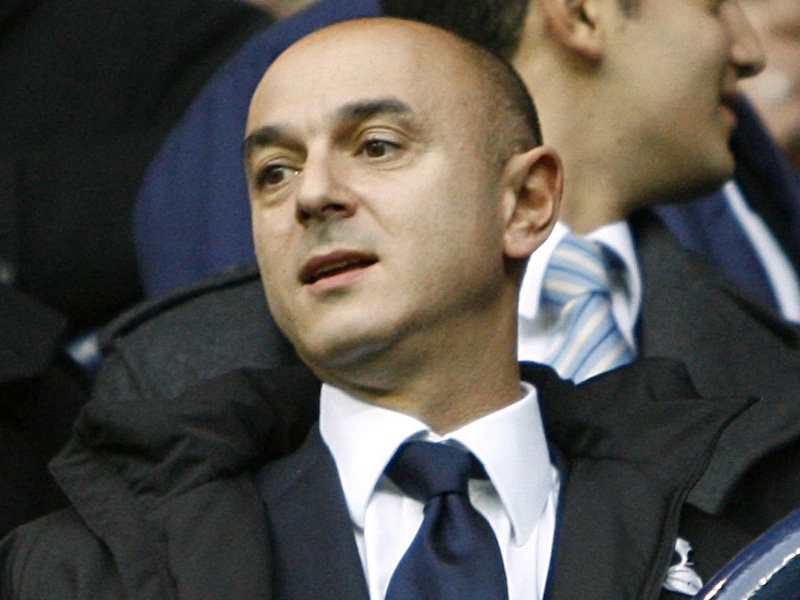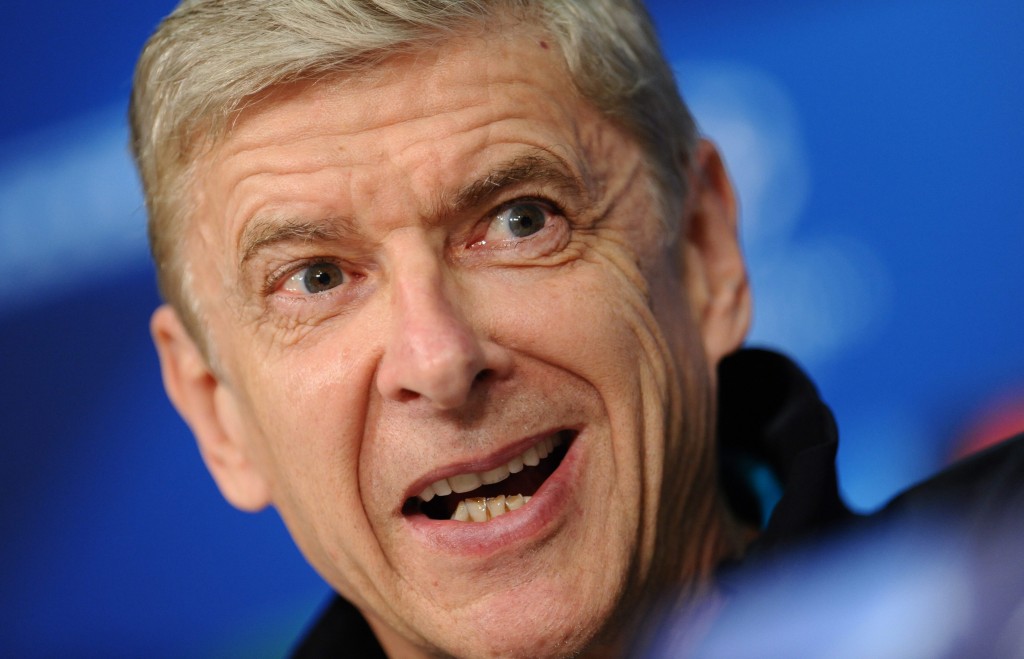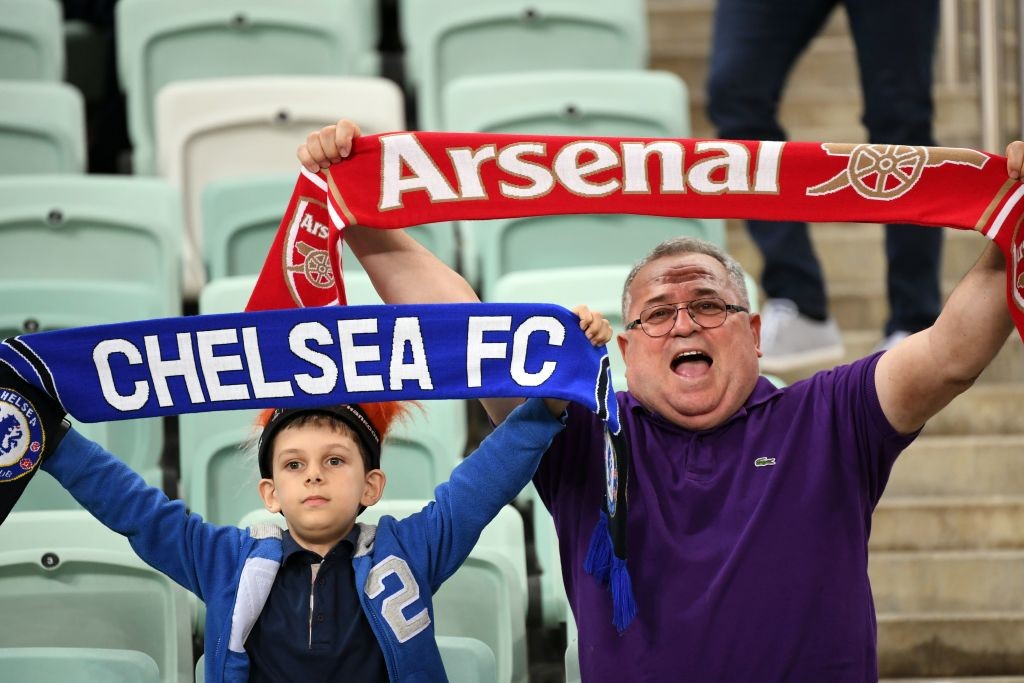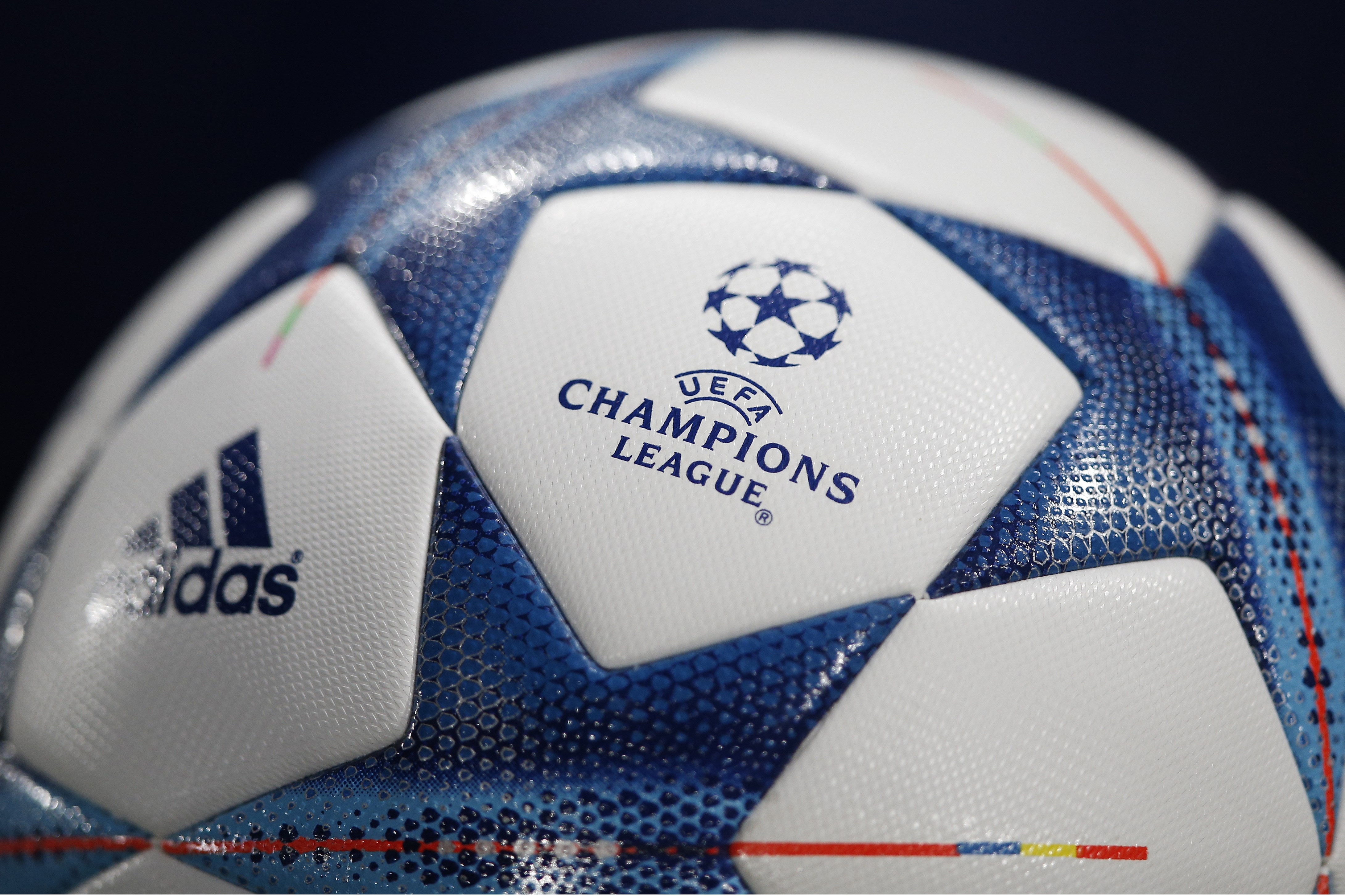With the stadium at White Hart Lane set to be demolished and renovated, the Daniel Levy-led Tottenham Hotspur management have managed to secure the rights to host Premier League and Champions League games at Wembley for next season.
Tottenham Hotspur will play their Champions League home games at Wembley next season and can use the national stadium as a temporary home for the campaign after announcing a double deal with the FA. The deal, worth £26 million, includes £22 million annual rent for occupying the stadium and an additional £4 million add-on should the Spurs make it to the knock-out stage of the Champions League. The deal also encompasses the option of Spurs spending an additional season at Wembley, as a back-up option should the new stadium hit delays.

White Hart Lane, with a capacity of 36,000, was set to take a loss of 4,000 seats from the North Stand in order to aid building work on the new stadium adjacent to the current ground. With that figure of crowd capacity falling below the standards set by UEFA for clubs taking part in the Champions League, Spurs had to look for an alternate venue, which is when the idea of renting Wembley took shape. Having secured the rights to host their games at Wembley, the club can continue its demolition work at White Hart Lane to work on the new stadium.

A 90,000 seater Wembley stadium provides a significant upgrade on the 36,000 capacity housed at White Hart Lane and as Levy explained, it provides the club with an opportunity to accommodate all of its season-ticket holders.
Speaking to the official website upon the confirmation of the deal, Levy said,”We are delighted that, through working in partnership with WNSL and the Football Association, we have been able to reach this agreement.”
“Given the current reduction in capacity at White Hart Lane for next season and the ticketing requirements for Champions League, playing at Wembley will mean that we can continue to accommodate all of our existing Season Ticket holders.”
“Our season ticket waiting list is over 50,000 so this now also offers us a great opportunity to provide more of our supporters with a chance to see the team play live during our Champions League campaign. Importantly, as we know it was our fans’ preference, it means that we can continue to play our home matches in London during our season away.”
Meanwhile, the FA Executive, Martin Glenn, expressed his satisfaction over the deal as well, stating,”Having Tottenham at Wembley for big European nights next season is a welcome opportunity for us to further the stadium’s position as a world-class venue.”
“As well as helping the club and its fans, it will benefit London and English football in general with our commitment to reinvesting all profits back into the game. The increased revenue will particularly help us meet our targets for improving coaching and grassroots facilities and growing participation. We were already on a strong financial footing, which allowed us to reinvest £117m back into the game at all levels last season.”
Wembley nightmare in store for Poch & Co?
Spurs aren’t the first London club to assume temporary ownership of England’s national stadium, with fierce North-London rivals Arsenal having also previously occupied the stadium for European competitions back in the 90s owing to the reduced capacity at Highbury. A pre-renovated Wembley could still house 70,000 back in the day and was often linked with a buyout by the Arsenal ownership who were for a long time, till their title sponsorship with Fly Emirates, divided in opinion over swapping the Gunners’ spiritual home, Highbury, for a new venue.

Commenting on Tottenham and Chelsea’s links to renting out Wembley, Arsene Wenger warned both sides of the “Wembley ‘European’ Nightmare’. He explained how the universality of the ground conditions didn’t exactly make his Arsenal side feel at home as they got themselves eliminated from the group stage of the Champions League in both the 1998-99 and 1999-2000. He said early in January this year,”“It was a nightmare [for us],” he said. “In hindsight it was the wrong decision. We decided to go to Wembley, but we didn’t feel at home. The pitch was bigger, the ground was different and for the English players it was something completely unusual. We were used at Highbury, to a tight pitch and unfortunately we were playing against Dynamo Kiev, who were running everywhere on a very big pitch. It was a disadvantage for sure.”



